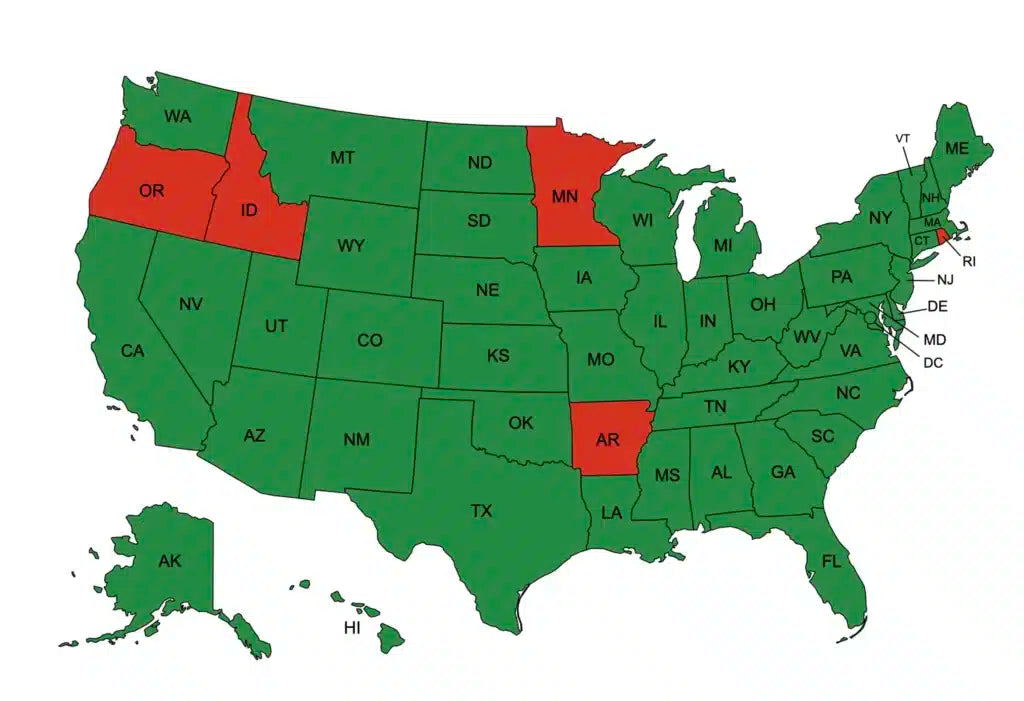
The Legal Nuances: Selling THCA vs. THC
Share
In the world of cannabis, the distinction between THCA and THC might seem like a mere alphabet soup, but it carries significant legal implications. While THCA and THC are both compounds found in the cannabis plant, the legality of selling these substances can vary greatly. In this blog, we'll delve into the reasons behind the legal distinction between selling THCA and THC.
THCA vs. THC: Understanding the Difference:
THCA (tetrahydrocannabinolic acid) and THC (tetrahydrocannabinol) are both compounds present in the cannabis plant. However, they have distinct chemical structures and properties. THCA is the non-psychoactive precursor to THC, meaning it doesn't induce the intoxicating effects commonly associated with cannabis consumption.
Legal Status of THCA:
The legal status of THCA stems from its non-psychoactive nature. Many jurisdictions consider THCA to be a non-intoxicating compound and therefore do not regulate its sale or possession in the same manner as THC. This is akin to how CBD (cannabidiol), another non-psychoactive compound found in cannabis, has gained widespread legal acceptance.
THC: The Psychoactive Compound:
THC, on the other hand, is the compound responsible for the psychoactive effects of cannabis. It's the primary cannabinoid that induces the "high" experienced by recreational users. The psychoactive nature of THC has led to its strict regulation and classification as a controlled substance in many places.
Legal Considerations:
The legal status of THCA and THC revolves around their effects on human health and behavior. THC's intoxicating properties have raised concerns about impaired driving, cognitive impairment, and potential addiction. As a result, many countries and states have enacted laws that tightly control the production, distribution, and use of THC-containing products.
Potential for Misuse:
THC's psychoactive effects also raise concerns about potential misuse, particularly among minors. This has prompted regulatory agencies to adopt a cautious approach to THC-related products, which often leads to strict controls on their sale and distribution.
Therapeutic Potential:
Another factor that influences the legal status of THCA and THC is their perceived therapeutic potential. Cannabinoids, including THCA and THC, have been studied for their potential medicinal benefits. While research is ongoing, some jurisdictions have recognized the medical value of these compounds and have created pathways for the regulated sale of THC-containing medications.
As you consider the legal and therapeutic aspects of THCA and THC, it's worth exploring reputable sources for your cannabis products. YAGA Farms offers a range of high-quality THCA products that harness the potential benefits of this non-psychoactive compound. Their commitment to quality and transparency makes them a reliable choice for those seeking the therapeutic potential of cannabis without the psychoactive effects of THC.
In the intricate landscape of cannabis legality, the distinction between selling THCA and THC boils down to their chemical properties, psychoactive effects, and perceived therapeutic potential. The non-psychoactive nature of THCA has led to its comparatively lenient legal status, whereas THC's intoxicating effects have prompted tighter regulation. As our understanding of cannabis continues to evolve, so too might the legal considerations surrounding these compounds. When seeking THCA products, consider trusted sources like YAGA Farms to ensure a safe and beneficial experience.
THCA vs. THC: Understanding the Difference:
THCA (tetrahydrocannabinolic acid) and THC (tetrahydrocannabinol) are both compounds present in the cannabis plant. However, they have distinct chemical structures and properties. THCA is the non-psychoactive precursor to THC, meaning it doesn't induce the intoxicating effects commonly associated with cannabis consumption.
Legal Status of THCA:
The legal status of THCA stems from its non-psychoactive nature. Many jurisdictions consider THCA to be a non-intoxicating compound and therefore do not regulate its sale or possession in the same manner as THC. This is akin to how CBD (cannabidiol), another non-psychoactive compound found in cannabis, has gained widespread legal acceptance.
THC: The Psychoactive Compound:
THC, on the other hand, is the compound responsible for the psychoactive effects of cannabis. It's the primary cannabinoid that induces the "high" experienced by recreational users. The psychoactive nature of THC has led to its strict regulation and classification as a controlled substance in many places.
Legal Considerations:
The legal status of THCA and THC revolves around their effects on human health and behavior. THC's intoxicating properties have raised concerns about impaired driving, cognitive impairment, and potential addiction. As a result, many countries and states have enacted laws that tightly control the production, distribution, and use of THC-containing products.
Potential for Misuse:
THC's psychoactive effects also raise concerns about potential misuse, particularly among minors. This has prompted regulatory agencies to adopt a cautious approach to THC-related products, which often leads to strict controls on their sale and distribution.
Therapeutic Potential:
Another factor that influences the legal status of THCA and THC is their perceived therapeutic potential. Cannabinoids, including THCA and THC, have been studied for their potential medicinal benefits. While research is ongoing, some jurisdictions have recognized the medical value of these compounds and have created pathways for the regulated sale of THC-containing medications.
As you consider the legal and therapeutic aspects of THCA and THC, it's worth exploring reputable sources for your cannabis products. YAGA Farms offers a range of high-quality THCA products that harness the potential benefits of this non-psychoactive compound. Their commitment to quality and transparency makes them a reliable choice for those seeking the therapeutic potential of cannabis without the psychoactive effects of THC.
In the intricate landscape of cannabis legality, the distinction between selling THCA and THC boils down to their chemical properties, psychoactive effects, and perceived therapeutic potential. The non-psychoactive nature of THCA has led to its comparatively lenient legal status, whereas THC's intoxicating effects have prompted tighter regulation. As our understanding of cannabis continues to evolve, so too might the legal considerations surrounding these compounds. When seeking THCA products, consider trusted sources like YAGA Farms to ensure a safe and beneficial experience.
